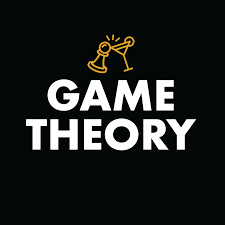Game Theory, a branch of mathematics and economics, provides a framework for analyzing strategic interactions among rational decision-makers. It offers insights into various fields, including economics, political science, psychology, and biology, helping to explain how individuals and groups make decisions in competitive situations. This article explores the fundamentals of game theory, its key concepts, applications, and real-world implications.
Key Concepts in Game Theory
- Games and Players: In game theory, a “game” involves players who make decisions that affect their outcomes and those of others. Players can be individuals, groups, or organizations, and their preferences can vary.
- Strategies: A strategy is a complete plan of action a player can take in response to different scenarios in the game. Strategies can be classified as:
- Pure Strategy: A specific action chosen by a player.
- Mixed Strategy: A probabilistic combination of actions.
- Payoffs: Payoffs represent the outcomes of a game for each player based on their chosen strategies. They can be expressed in various forms, such as utility, profit, or satisfaction levels.
- Nash Equilibrium: Named after mathematician John Nash, a Nash equilibrium occurs when no player can benefit by unilaterally changing their strategy while others keep theirs unchanged. This concept helps identify stable outcomes in strategic interactions.
- Dominant Strategy: A dominant strategy is one that yields a higher payoff for a player, regardless of what other players choose. If a player has a dominant strategy, they will always opt for it.
Types of Games
- Cooperative vs. Non-Cooperative Games:
- Cooperative Games involve players forming coalitions and making binding agreements to achieve better outcomes.
- Non-Cooperative Games focus on individual strategies without the possibility of binding agreements.
- Zero-Sum Games: In zero-sum games, one player’s gain is exactly balanced by the losses of others. Poker is a classic example, where the total amount of money won and lost remains constant.
- Simultaneous vs. Sequential Games:
- Simultaneous Games involve players making decisions at the same time without knowing others’ choices.
- Sequential Games involve players making decisions one after another, allowing later players to respond to earlier actions.
Applications of Game Theory
- Economics: Game theory helps analyze market competition, pricing strategies, and auctions. It can explain behaviors in oligopolies, where a few firms dominate the market and must consider competitors’ actions.
- Political Science: In international relations, game theory is used to model negotiations, alliances, and conflict situations. It helps predict how countries might behave in response to various diplomatic moves.
- Biology: Game theory is applied in evolutionary biology to understand animal behaviors and strategies, such as mating, foraging, and territory defense. Concepts like the “Hawk-Dove” game illustrate how animals may adopt different strategies based on the environment.
- Computer Science: Game theory informs algorithms in artificial intelligence, particularly in multi-agent systems where multiple agents interact. It aids in designing mechanisms for resource allocation and decision-making.
Real-World Implications
Game theory has profound implications for decision-making in various domains. Understanding the strategies and potential outcomes allows individuals and organizations to navigate complex interactions more effectively. For example, in business negotiations, anticipating competitors’ moves can lead to more favorable outcomes. In public policy, game theory can help design systems that encourage cooperation among stakeholders.
Conclusion
Game theory provides a powerful framework for analyzing strategic interactions and decision-making processes across diverse fields. By understanding its key concepts and applications, individuals and organizations can enhance their strategic thinking and improve their outcomes in competitive environments. As the complexities of human behavior and interaction continue to evolve, game theory remains a vital tool for navigating the challenges of the modern world.




